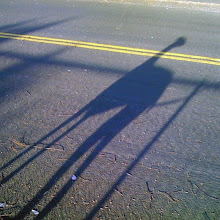If You're Sad, and Like Beer, I'm Your Film
Oddball that I am, mid-Olympics I had us not watch the NBC-tape-delayed-USfest but a six-year-old movie set 77 years ago and shot like it was made then, set in a Canada not just lost in snow but lost in the Depression, and all-too-eager to remind you that depression isn't just a word from economics. The Saddest Music in the World is a film by unclassifiable filmmaker Guy Maddin who is fittingly named like one of his film's characters, for he's one mad guy. Mad for cinema, particularly German Expressionism, Russian Constructivism, but then other batty bits, a touch of noir, an arc of something arch from Astaire and Rogers. Mad for melodrama; his plots would put a soap opera scribe to shame, but he offers them so matter-of-factly--why of course that dad who believes he's responsible for his young son's death carries the boy's heart preserved in his own tears around in a jar--you want to laugh at the cliche, but it's so goddam believed, so ratcheted up to be more than cliche, you can't.* Mad for memory, not just in his magnificent mish-mash of styles, but in his characters, one amnesiac and lovely, another forlorn and begrudging, another, notably the one who passes himself off as the American, doing his best to bluster and shyster his way past his own terrible history, but we'll see what happens there (look out, America?).
To make a comparison, Maddin sits somewhere between David Lynch and Daniel Handler, a lemony surrealist, a formalist eager to drill down into the psychosexual heart of the world. How could I not love a man who writes things like, "Eschewing digital effects as grotesque artifacts of the present," or "Feeling that happiness depends on structure and hierarchy, I set my rank as director apart by donning jodhpurs and an imposing fez."
Does the contest of battling nations, hoping to prove they possess the saddest music in the world (and win the prize of, as Isabella Rossellini's character puts it, "25,000 Depression-Era dollars"), actually discover the singular song of sorrow? Or does it do something more, finding sorrow in our mini-tribes we know as the family, our pacts and treaties of love that we can't help but betray, mangle, defy, reify into some grand meaning, of a way to have the world feel, if just a tiny bit (I will play my song for my lost love, drives one character; I will repent for my great sin by repairing the one I love with something imaginable, beautiful, glittering and full of beer, thinks another).
It's telling a Jerome Kern chestnut ("The Song Is You"--what else could be more navel-gazingly dolorous, sad-sack?) played by a Canadian cellist posing as Serbian haunts the movie. Worldwide we've all shed tears in our beer, but that doesn't keep us from drinking.
*In his laudatory essay when the film came out, the Chicago Reader's Jonathan Rosenbaum quoted Umberto Eco: "When all the archetypes burst out shamelessly, we plumb Homeric profundity. Two cliches make us laugh but a hundred cliches move us because we sense dimly that the cliches are talking among themselves, celebrating a reunion."
Labels: film, guy maddin


1 Comments:
I second this. Maddin's films challenge even as they feed all those cinematic wants. His silent films (Brand Upon the Brain, Cowards Bend the Knee) are excellent as well. I think you can safely say that for Maddin, all myths are intensely personal.
Post a Comment
<< Home